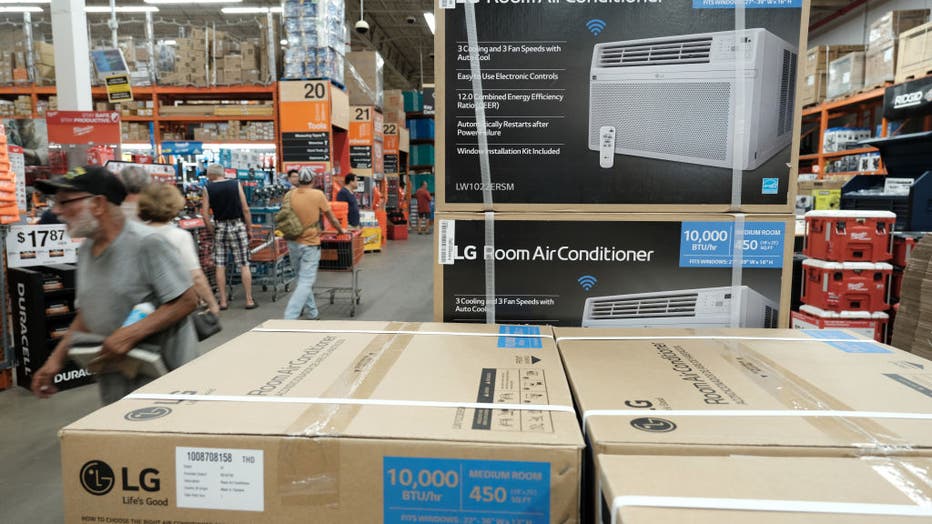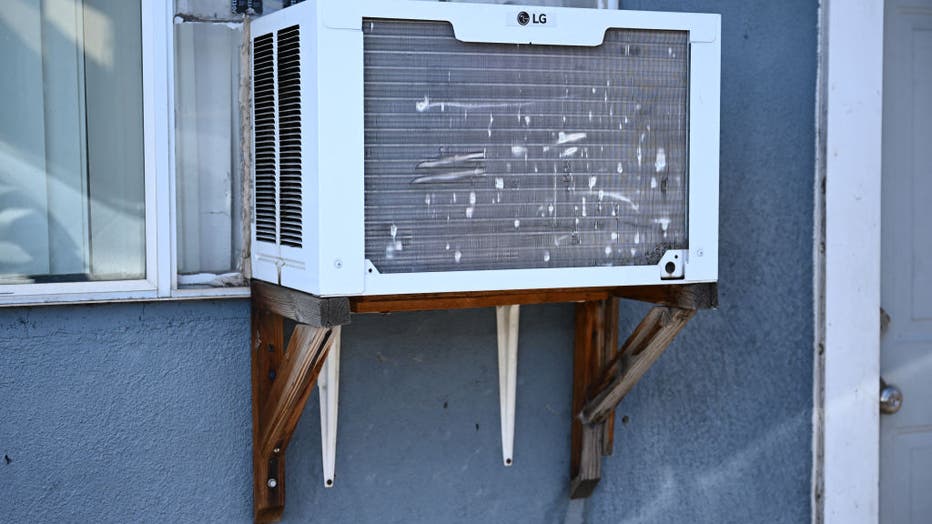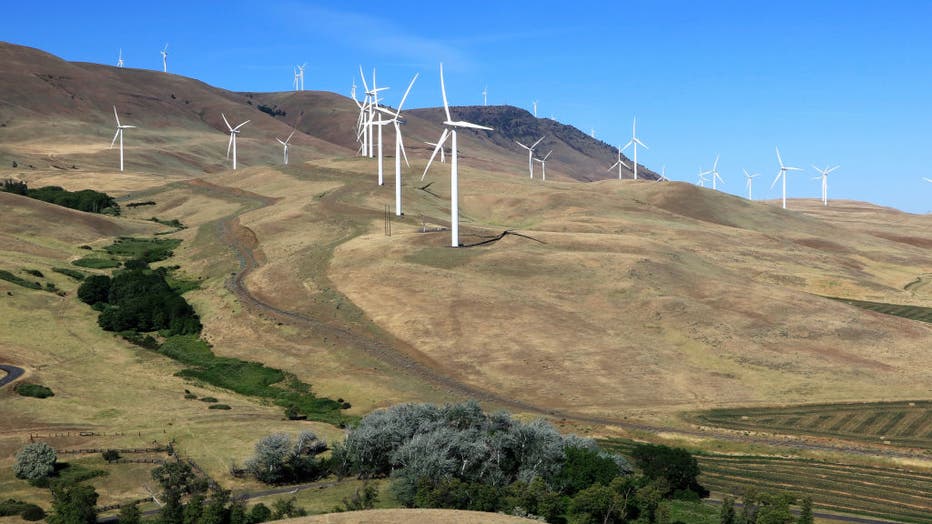Power companies around Puget Sound brace for future heat waves, more homes with A/C

Power companies brace for future heat waves
About half of the buildings and homes in the greater Seattle area have air-conditioning, according to the U.S. Census Bureau. That number is expected to grow as climate change makes heat waves worse in the future.
SEATTLE - As heat waves in Western Washington become more common and longer lasting, Seattle City Light (SCL) and other power companies are preparing for more homes and buildings to have air conditioning– which is expected to create a spike in demand for energy in the decades ahead.
According to 2021 data from the U.S. Census Bureau, about half of the buildings and homes in the greater Seattle area have air conditioning. That number is expected to rise as climate change makes heat waves worse. Seattle City Light is now laying the groundwork for a potential 45% increase in average demand for energy in the next 20 years.

NEW YORK CITY - JULY 28: Air conditioners are displayed for sale at a Home Depot during a heat wave in Brooklyn on July 28, 2023 in New York City. (Photo by Spencer Platt/Getty Images)
The forecast surge is putting pressure on utility companies to plan ahead now, to avoid power outages and blackouts down the road.
People around Puget Sound tell us that extreme heat is a growing burden on our local communities.
"Oh, no air conditioning. The house is so old that we just like close up the windows and the doors and pray for the sun to go down," said Seattle resident Alta Green.
The increased use of air conditioning can make it difficult to maintain a reliable power grid during major heat waves. Many experts agree that the additional demand from air conditioning units adds pressure to the grid, which is critical for powering homes, businesses, schools, and hospitals and keeping our society running.

An air conditioning unit is seen in the window of a residence during a record heat wave in Phoenix, Arizona on July 19, 2023. (Photo by Patrick T. Fallon / AFP) (Photo by PATRICK T. FALLON/AFP via Getty Images)
FOX 13 spoke with Ronda Strauch, climate change research and adaptation advisor for Seattle City Light. She believes SCL will be able to meet the increase in demand.
"Yes, definitely through a multiple, a multitude of solutions," said Strauch. "We are undergoing actions even today to help meet those demands and meet the potential impacts from climate change and those are including upgrades to our grid."
There’s an extra challenge when utility companies not only focus on how to reliably supply electricity, but to do so with renewable energy.

Wind turbine farm in the Columbia River Gorge on the Washington state side of the river. (Photo by: Don and Melinda Crawford/UCG/Universal Images Group via Getty Images)
The Puget Sound region relies heavily on hydropower with the minority of the energy coming from wind, solar and nuclear.
Almost all the power for Seattle City Light, Snohomish County PUD and Tacoma Public Utilities comes from renewable energy sources.
More than 43% of Puget Sound Energy’s (PSE) power supply is from clean sources like wind, hydro and solar. PSE says it’s on track to eliminate coal by the end of 2025, required by Washington’s Clean Energy Transformation Act.
Featured
Local firefighters respond to more brush fires this year than all of 2022
With these searing weather conditions, firefighters are standing by for anything that sparks, and they are not having to wait very long for the next call.
Juliet Homer with the Pacific Northwest National Laboratory said using a diversity of renewable energy is important.
"Looking at hydropower can help support the grid in extreme events, how hydropower itself might be impacted by climate change, but how it can provide climate resilience as well," said Homer. "There’s so many different scenarios. We need to make sure that when the wind’s not blowing, we have resources when there’s a low hydro year."

SEATTLE, WA - JULY 21: A view of the Seattle skyline is seen from Lake Union before the NHL -Seattle Kraken expansion draft July 21, 2021 at Gas Works Park in Seattle, WA (Photo by Jeff Halstead/Icon Sportswire via Getty Images)
Local power companies are always improving efficiencies in power generation, but they say consumers can play a role as well.
"Even like pulling down your blinds and shading out the sun, turning your air conditioning up just a couple degrees makes a difference," said Strauch.
Some experts say charging electric vehicles in off-peak times could help as well.
"As long as people can charge those electric vehicles at off-peak times, I think there’s plenty of energy in the region to really accommodate all the electrification, which really does provide good greenhouse gas benefits," said Homer.


